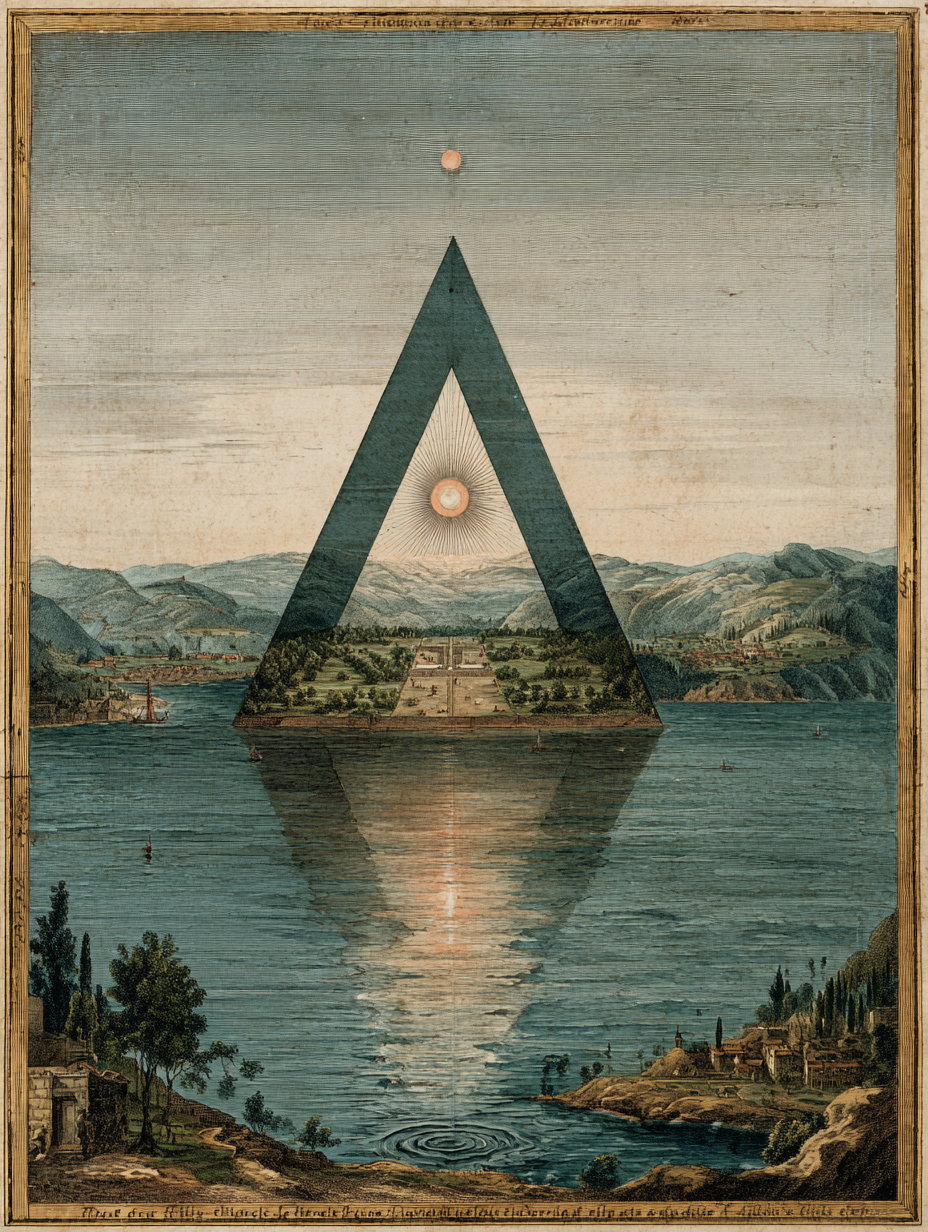The Chamber and the Fold: Marginalia alongside Giegerich (Kierkegaardian Rendition)
Here, marginalia shadow Giegerich’s text. The margin speaks from the underworld; the body answers from the realm of the sun, until, on the third day, the gate breaks, and only what has died returns as psychology.

“…Adequacy under stress…” (Implicit across the chapter)
Adequate to what? By the time it’s asked, the answer is already late.
One might suppose adequacy is a beginning — a blueprint before the house is built. But what if the house has been standing for centuries, its mortar darkened like old blood in stone, waiting for us to notice the cracks? Then adequacy is not a plan; it is the verdict the walls have been delivering all along — a slow, patient weighing.
“…the ‘cure’ of neurosis cannot consist in ridding us of the disunity…” (p. 26)
Would you heal a wound by pretending it never bled?
The fracture is not a flaw to be erased but a form to be held. The seam where the mineral trace once vented shows the vessel has endured its forge. A unity without its scar is counterfeit — an empty crucible.
“The Holy Ghost is the undeveloped germ… whose unfolding would necessarily decompose the myth-structure…” (p. 85)
So the Spirit’s first act is demolition?
Spirit enters not to restore the fresco but to strip the wall bare — as rain once washed the painted blood from temple reliefs, leaving only vein-lines in the stone. The end of images is not the end of meaning; it is the moment the vessel, emptied, proves it can still hold.
“Abstraction is one form of negation… Psychology needs the ‘labor of the Concept.’” (pp. 26–27)
Labor, yes — but whose calluses will be the proof?
Heat alone cannot lift. Thinking must do the carrying — not to flee life, but to strip it to bone. In the rubedo forge, form is hammered until the slag runs off and what survives rings hard enough to wound the hand that tests it.
“…the ‘No entry!’… the permanent Last Judgment dividing ‘the sheep from the goats’.” (pp. 23–24)
And if I find myself neither sheep nor goat — but human, all too human?
Judgment is not a gate to be Überwunden; it is the exhaust-thick air we already breathe, heavy enough to slow the blood. To think is to have been weighed like a heart before Ma’at — not wanting, not worthy, but suspended in the balance, where no verdict ever truly lands.
“…statements would in themselves be the cutting edge of a sword…” (p. 22)
Sharp enough to draw blood from both hands that hold it.
A true sentence leaves something bleeding. The one who speaks it is not spared; the cut passes both ways. After such speech, there is no return — only the red seal of having crossed the threshold.
“You have to already be there if you want to get there…” (p. 21)
So the journey is always an afterthought?
To move forward is to retrace steps one has not yet taken. Arrival precedes departure, and the beginning is always the child of the end.
“…what expresses the state-of-the-art insights of the field in adequate form…” (p. 13)
The field? Or the silence beyond it?
Adequacy is not polish but containment — the sealed vessel that decides whether thought condenses into speech or dissipates into air. A poor form fractures under pressure; a right one returns the current altered, dense enough to cross intact.
Tail Note
These fragments move from the outside in. The “origin” arrives last. Not as preface — as consequence, sealed inside.
“When evening comes… I step inside the venerable court of the ancients… I am not ashamed to speak to them and to ask them the reasons for their actions, and they in their humanity answer me.”
— Machiavelli, Letter to Vettori (1513)
Further Reading
Follow the soul’s logic through Giegerich’s The Soul’s Logical Life, into Kierkegaard’s trembling, through Jung’s slow fire in Mysterium Coniunctionis. Let Nietzsche’s Beyond Good and Evil keep the wound open, Wittgenstein’s Tractatus walk you to the edge where speech dies, and Einstein’s Relativity carry what remains across the void. Machiavelli’s Letter to Vettori remains the evening door to the ancients.